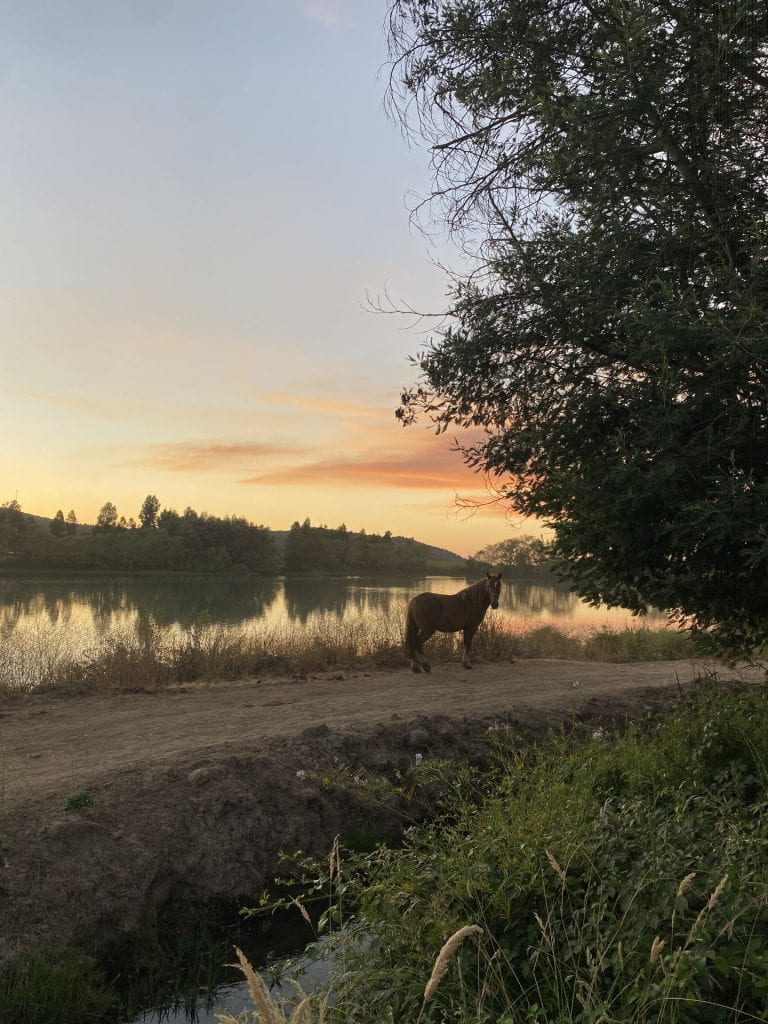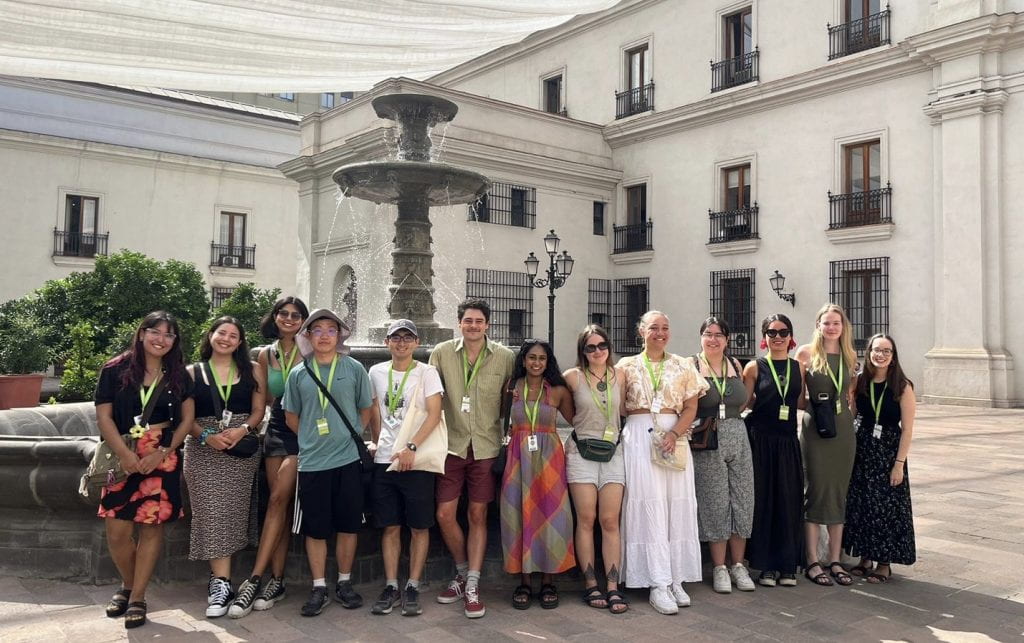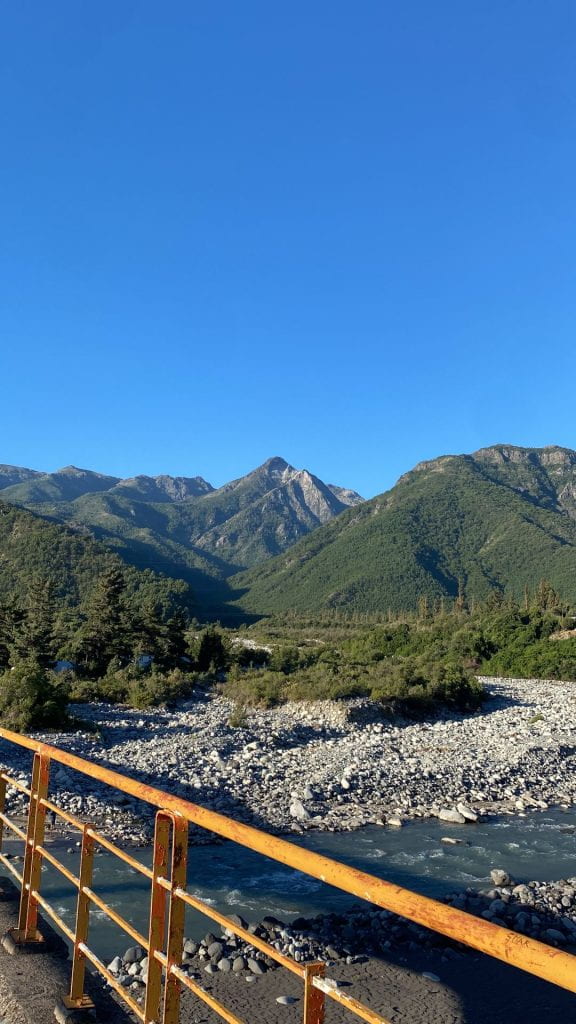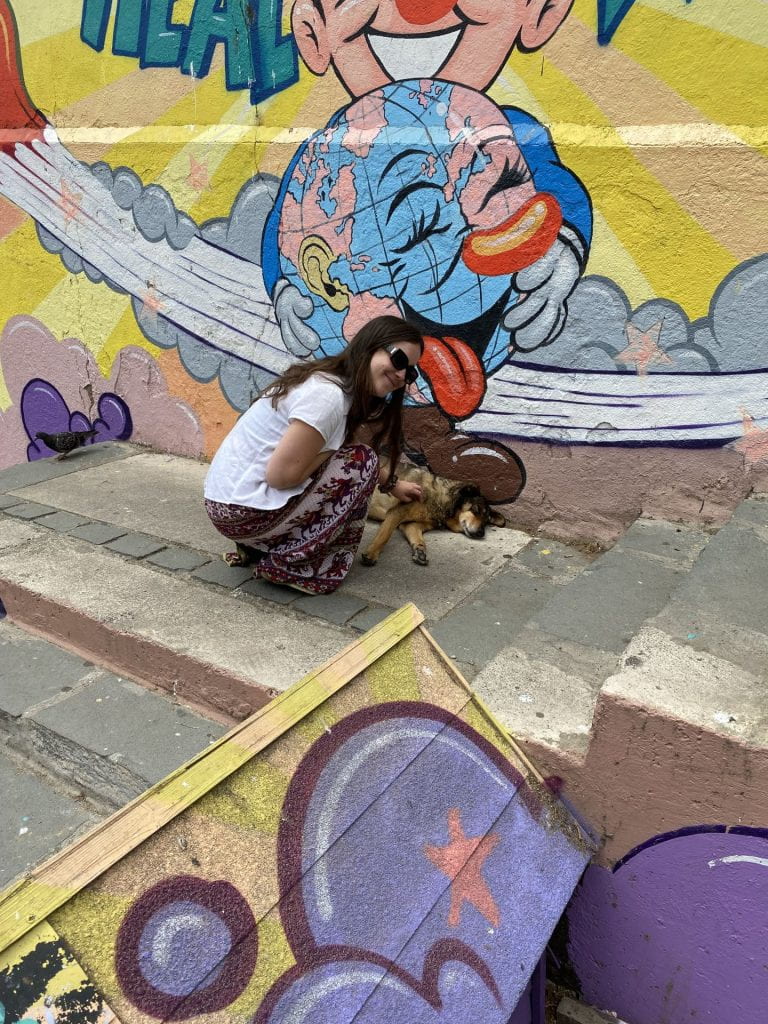Kia ora!
Although this is my final blog in the Prime Minister’s Scholarship schedule, nothing about writing this feels ‘final’. Over the past week back in my tūrangawaewae, I have missed the sites, atmosphere and experiences I had in Chile; however, I have the solace of knowing that more journeys in Latin America are on the horizon. While I may not know what future kaupapa across Te Moananui-a-Kiwa will look like, I feel the mauri of Latin America calling me back. I will forever acknowledge Chile as the place where my steadfast love for Indigenous care grew, and for that I will forever be grateful and seek ways to return!
Chile was my first exposure to connecting our voices, experiences and realities as global citizens, solidifying the vitality of worldliness in our personal and professional lives. The relationships formed with phenomenal academics, classmates and friends will endure the distance between us, our love for our communities and careers a common vein that traverses through us all.


The reflections of PMSLA are endless, which I am journaling about to better understand their application to my life. I have selected a few that I feel are already significantly shaping the person I am, and I feel they are fitting to share.
Actively seek out kōrero with people from around the world. Remember, follow up on and amplify their whakaaro.
At first, Chilean culture and society felt so incredibly different to life here in Aotearoa. As more kōrero were fostered, omnipresent facets of the human condition became abundantly clear. Our shared patience with one another, the way we loved members of our community, our ability to communicate regardless of language barriers — it was in conversations with those seemingly so ‘different’ to me that I realised how inherently connected we all are.
However, feeling connected needs to be felt in accordance with the acknowledgement of our diversity. Connection and diversity are not antonyms of each other — they are two critical, integrated components of global citizenship. The needs, wants and realities of individuals, particularly those from Indigenous or migrant backgrounds, allowed me to acknowledge my positionality and privilege in many of the spaces I occupy. As a future health professional, the diverse needs and experiences that shape an individual need to be my primary consideration, in order to truly connect with my patients.
To better your skills as an ambassador of Aotearoa, connect more with your whakapapa.
As tangata whenua, my whakapapa has always been the core of my being — I have a deep respect and connection to my whenua, and have always acknowledged the presence of my tūpuna within my life. Before going to Chile, I knew my engagement with my whakapapa needed to grow. However, I feel as if I made excuses as to why I didn’t go to Whāingaroa more often. I fell into the ‘busy University student’ narrative, where I struggled to balance life as a pre-medical student and as a proud descendant of Whāingaroa.
While in Chile, my yearning to deeper connect with my whakapapa exponentially grew. As a representative of Waipapa Taumata Rau, I took great pride in sharing my culture, and representing the realities of my community abroad. It’s in these spaces that I felt most like myself, sparking a profound desire to further understand both sides of my whakapapa. Chile solidified that no excuse warrants disconnect from my home and my people — they are my backbone, and my work must always be grounded in who I am.
You are a student. More importantly, you are a daughter, sister, and a friend.
As a ‘type A’, extroverted young wāhine, a lot of my energy has been channelled into my academic life. It’s a space I have turned to for validation, and has tended to shape a lot of my self esteem. I love my studies, and know that tertiary education is where my future lies. However, engaging with communities in Chile, particularly Indigenous communities, spoke volumes about our roles within the lives of those we love. There was a huge emphasis on what it means to contribute to a whānau community, and how vital it was to stay connected to the people who helped shape you.
PMSLA set the wero of valuing and contributing to my relationships in a more meaningful, authentic way. Likewise with connecting more to my whakapapa, this notion of understanding the key facets of what constitutes me is highly relevant to my friends and whānau. There is no value in being an academic if these skills are not serving people — may I never forget who I represent, and who this is all for.


To everyone in both Aotearoa and Chile that made this experience possible, I express my profound gratitude to you all. Thank you for enriching my life beyond imagination, and for providing a plethora of experiences and learnings to apply to my various kaupapa. PMSLA is such a taonga to me, and I vow to keep the intentions of this kaupapa alive for the rest of my life.
Muchas gracias, ngā mihi nui, chaltumay, thank you!
Charlotte
